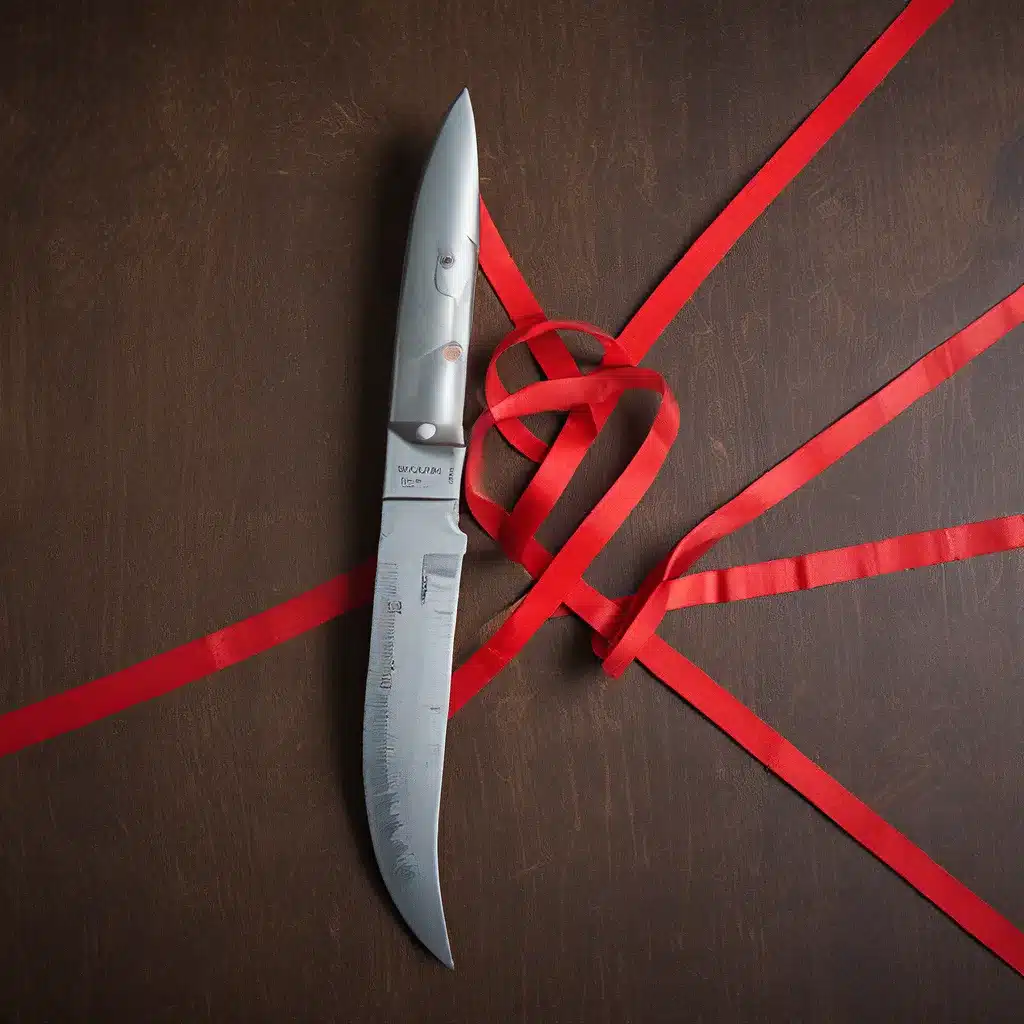
As a self-proclaimed knife enthusiast, I’ve navigated the treacherous waters of knife laws more times than I’d like to admit. From pocket clips to blade lengths, it can feel like a minefield out there, with each state, city, and county having its own unique set of regulations. But fear not, my fellow blade-lovers – I’m here to be your guide through this legal labyrinth.
The Great Knife Debate
Now, I know what you’re thinking – why do we even need all these knife laws in the first place? It’s a fair question, and one that’s been debated for ages. On one side, you’ve got the advocates who argue that certain knives are inherently dangerous and need to be regulated for public safety. And on the other, you’ve got the knife enthusiasts who claim these laws are nothing more than government overreach, infringing on our precious right to carry our favorite tools.
Personally, I can see both sides of the argument. I get that some knives, like military-style fixed blades or switchblades, can be intimidating and potentially misused. But at the same time, I firmly believe that the vast majority of knife owners are responsible, law-abiding citizens who just want to be able to carry their trusty pocket knife or hunting knife without fear of being arrested.
Navigating the Legal Landscape
Alright, let’s dive into the nitty-gritty of knife laws. As I mentioned, the rules can vary widely depending on where you are. Some states, like California, have relatively strict regulations, while others, like Texas, are practically the Wild West when it comes to blade freedom.
One of the most common points of contention is the blade length. In many jurisdictions, there’s a limit on how long the blade can be, usually around 3-4 inches. But here’s the kicker – that limit often only applies to concealed carry. If you’re open-carrying your trusty Bowie knife, you might be in the clear. Of course, it’s always best to check your local laws before strutting around town with a 10-inch blade.
Another factor to consider is the type of knife. Fixed blades, folding knives, and assisted-opening knives can all be subject to different regulations. And don’t even get me started on the legal minefield that is switchblades. Depending on where you live, these bad boys might be completely off-limits, or you might be able to carry one as long as the blade is under a certain length.
Keeping Yourself Out of Trouble
Now, I know all this legal mumbo-jumbo can be a real headache, but trust me, it’s worth taking the time to understand the rules in your area. The last thing you want is to end up in handcuffs because you didn’t realize your new pocket knife was a few inches too long.
One of the best things you can do is to research your local laws thoroughly. Check out your state and city websites, or even reach out to your local law enforcement to get the lowdown on what’s allowed and what’s not. And if you’re planning on traveling with your knives, be sure to familiarize yourself with the laws in each state you’ll be passing through.
Another helpful tip is to keep your knives visible and accessible. Many knife laws are specifically targeted at concealed carry, so if you’re open-carrying your blade, you might be in the clear. Just be mindful of where you’re wielding your knife – you don’t want to end up scaring the locals or getting mistaken for a threat.
And last but not least, be respectful and cooperative if you do get stopped by the authorities. Even if you know your knife is legal, arguing or getting combative is only going to make the situation worse. Keep your cool, explain the situation calmly, and follow any instructions the officer gives you.
Embracing the Blade Responsibly
Look, I get it – knife laws can be a real pain in the you-know-what. But at the end of the day, we’re all in this together, right? As knife enthusiasts, it’s our responsibility to set a good example and show the world that we can enjoy our blades responsibly.
So, the next time you’re about to strap on your favorite folder or open-carry your prized Bowie, take a moment to double-check the local laws. It might not be the most exciting part of being a knife lover, but it’s a crucial one. And who knows – maybe your diligence and respect for the rules will even help change some minds about the knife community.
At the end of the day, we’re all in this together, so let’s do our part to cut through the red tape and keep the knife world safe and legal. Happy (and lawful) slicing, my friends!


